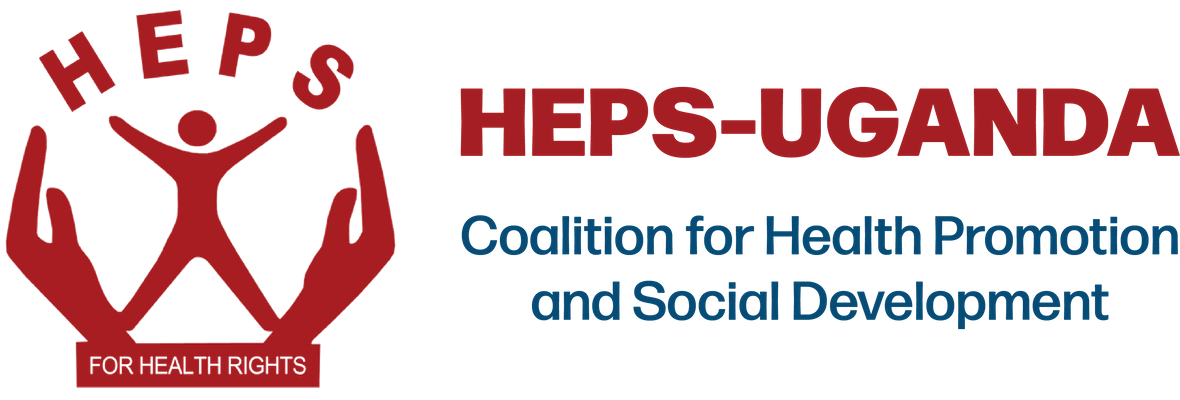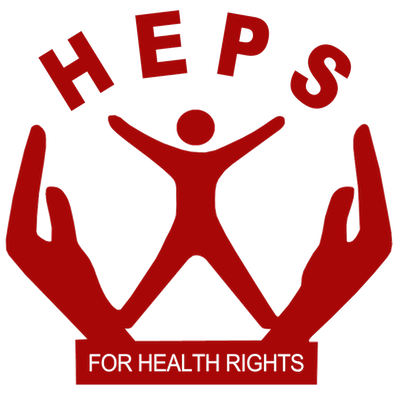World Contraception Day(WCD): HEPS-Uganda commemorated World Contraception Day by supporting an integrated outreach initiative that provided immunisation and family planning services to the community members at Ssaza grounds, Kiboga District, where the WCD was celebrated. The event also featured the launch of the Yellow Fever vaccination campaign and the introduction of a new contraceptive method, Levoplant. Hon. Margaret Muhanga, the State Minister for Primary Health Care, and Dr. Richard Mugahi, the Commissioner for Reproductive Health, graced the occasion.
During the commemoration, HEPS-Uganda received commendation for its outstanding role in strengthening health services and for its close collaboration with both the district and the Ministry of Health.
Read more about #WCDUG25 on X and LinkedIn #HEPSUGANDAat25
Our Executive Director, Kenneth Mwehonge, participated in an X-Space dialogue hosted by UGANET on September 23, 2025, titled “Understanding the UNAIDS Proposed Closure and its Implications to Key Vulnerable Communities.” This discussion followed the UN Secretary General’s announcement of UNAIDS’s planned phase-out by the end of 2026, raising urgent concerns about the future of the global HIV response for vulnerable communities. The session, moderated by Rogers M. Wanambwa, included thought leaders such as Martha Clara Nakato, Flavia Kyomukama, and Flavia Zalwango.
From our partners,
The African Palliative Care Association held the 8th International African Palliative Care and Allied Services Conference in Gaborone, Botswana, from September 23 to 26. This tri-annual event brought together African ministries of health, civil society organizations, and palliative care professionals from around the world. This year’s theme was “20 Years of Palliative and Comprehensive Chronic Care for Sustainable Development in Africa.”
SRHR Alliance Uganda: SRHR Alliance Uganda organized an engaging X-space discussion as part of Suicide Prevention Awareness Month to raise awareness, share knowledge, and provide support for young people navigating mental health challenges and those standing alongside suicide survivors.
UGANET: UGANET, in partnership with Hand of Charity, Telcan Uganda, and TASO Uganda, worked alongside Kayunga District and local health workers to raise awareness and strengthen HIV/AIDS prevention efforts. This collaboration was to address the spread of HIV, particularly in communities with limited access to information and support.
From your community,
West Nile: The Association of Surgeons of Uganda held a one-week surgical outreach in West Nile, aiming to provide life-saving operations to at least 2,000 patients, to help address Uganda’s growing burden of untreated surgical conditions. The camp brought services closer to underserved communities while screening school children for conditions such as eye defects that often go undetected.
Kamuli: At least 5,000 people have reportedly benefited from free healthcare and treatment provided by Vine Uganda during its independence health camp. The latest camp was held at Kitayunjwa Seed School grounds, where 2,115 patients were treated in addition to 2,227 who had received care during an earlier outreach in Butansi. Over 600 others accessed different support services ranging from menstrual hygiene education to household supplies and children’s sports kits.
From Uganda,
Mama kits are free: The National Medical Stores (NMS) has reassured Ugandans that Mama Kits – the government-funded birth packs meant for safe deliveries – are free of charge, despite growing concerns that some mothers are still being asked to pay for the supplies in hospitals. Mama Kits contain gloves, soap, gauze, cotton wool, umbilical tape, a razor blade, and a plastic sheet. Though simple, these items are credited with saving thousands of lives by reducing infections during delivery.
Colleagues, the effective HIV prevention injection has come: A new long-acting medicine that prevents HIV transmission will be in Uganda in 2026 through PEPFAR, the US State Department has confirmed. Lenacapavir, produced by US-based Gilead Sciences, is a revolutionary new medicine that prevents HIV infection with injections just twice a year.
NMS wakes up to medicine theft: The National Medical Stores (NMS), in collaboration with the Ministry of Health, the Uganda Police Force, and the Health Monitoring Unit (HMU), has launched a nationwide media campaign urging citizens to help prevent the theft of government-procured medicines. The one-month initiative, running on radio and online platforms across urban and rural areas, emphasizes accountability, citizen vigilance, and stricter penalties for offenders.
URA versus public health: Uganda’s healthcare system faces a looming crisis as a tax dispute between the National Medical Stores (NMS) and the Uganda Revenue Authority (URA) threatens the distribution of essential medicines across the country. NMS general managerMoses Kamabare warned the Parliament’s Health Committee that although NMS has sufficient stock, URA has blocked the release of consignments of imported medicines over a 2.5% tax on imported drugs introduced on July 1, 2025.
From the region,
Africa’s silent heart crisis: As the world marked World Heart Day today, Tanzanian cardiologists raised their voices about this hidden crisis. They warned that unless urgent action is taken, cardiovascular diseases (CVDs), once considered rare on the continent, will continue to overtake infectious diseases as the leading cause of death.
Côte d’Ivoire strengthens polio eradication efforts with modern laboratory: Côte d’Ivoire has taken a crucial step in the efforts to protect children from the debilitating effects of poliovirus with the launch of an upgraded laboratory to enhance detection and timely response to end the circulation of the virus.
Global health security
Response to end Ebola outbreak in the DR Congo is accelerating, with a range of control measures being scaled up, leading to quicker detection of the virus, early start of treatment and care, contact tracing, as well as vaccine rollout.
Vaccinations are saving lives: Vaccinations have saved the lives of an estimated 17 million people between 2021 and 2024 – but global immunisation programmes face several challenges, according to an assessment by the World Health Organization’s (WHO) Strategic Advisory Group of Experts (SAGE) on Immunisation.







